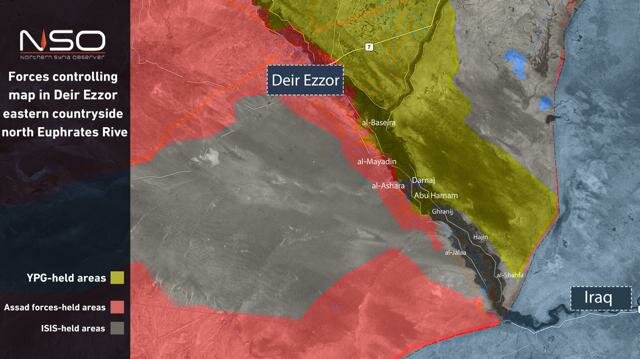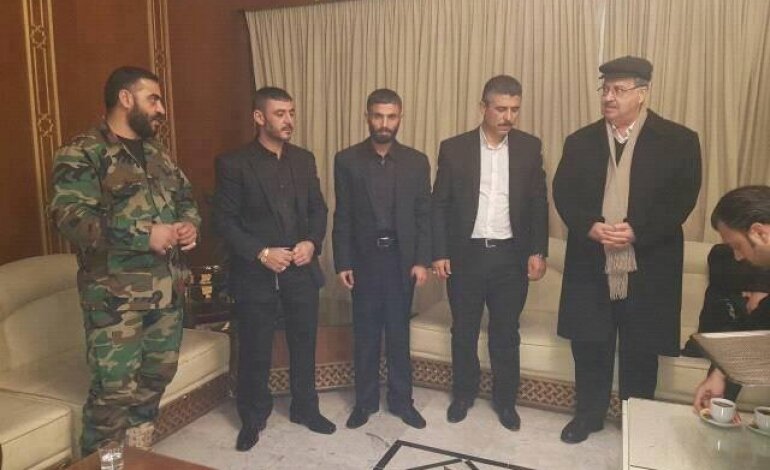Iran has the strongest influence in eastern Syria, the "al-Baqir Brigade" and details of its forming in a special report of NSO
A photo of Nawwaf al-Bashir, the founder of "Clans' lions" militia in the far right, and Khalid Ali al-Hussein the founder of the al-Baqir Brigade on the far left
Iran seeks to expand its influence in Syria by winning the allegiance of local communities and by annexing groups by providing them with support, training, and making them Shia. Although these Iranian attempts in Syria date back to the 1980s after the arrival of the former Syrian regime president Hafez al-Assad, it became more clear and public after the start of the Syrian revolution exploiting the state of war and chaos.
NSO reporters in the Syrian region of al-Jazira were able to obtain information on the circumstances of the forming of the al-Baqir Brigade, the most influential Iranian tool in these areas, the composition of its elements and the role it plays in the areas of eastern Syria.
The al-Baqir Brigade, which operates in Aleppo and Deir al-Zour, is one of the most prominent armed groups supported and trained by Iran in recent years in Syria, as part of its strategy to expand its influence inside Syria, the al-Baqir Brigade was established in 2014 by its current leader, Khalid Ali al-Hussin known as Khalid al-Mar'i, in order to avenge the "Free Army" factions that killed his father after entering the city of Aleppo in 2012 and storming the neighborhood of Marje, where Khalid and his brother Tariq escaped, while the factions arrested his father and was executed after his involvement in the killing of two Free Army fighters at a checkpoint near the village of Aziza.
The commander of the al-Baqir Brigade, Khalid al-Mar'i, belongs to the Baggara tribe. He comes from the village of Balloura, which belongs to the city of Safira in Aleppo southern countryside. He joined the fighting alongside the Assad forces with the aim of avenging his father. He was able to obtain Iranian support helped him forming the brigade in 2014 in Aleppo countryside, where he became its military commander and nicknamed with "Haj Baqir", while his brother Tariq took up the post of Chief of Staff of the brigade, who was killed late last October during his participation with the Assad forces in batt.es with ISIS in Deir Al-Zour,they also have a third brother, Omar al-Mar'i, a member of the Assad regime's parliament.
The Al-Baqir Brigade includes Shia members of the tribesmen, most of whom belong to the Baggara and al-Akeidat tribes, where Mahmud Nawwaf al-A'dai al-Jubouri, the main supporter of the brigade, and the head of the Imam al-Mahdi Center in al-Sayida Zeinab district of Damascus, who met on February 11, 2018, with Iran's international affairs advisor Ali Akbar Velayati and deputy commander of the Iranian Revolutionary Guard General Hussein Salami during a visit to the Iranian capital Tehran to participate in the anniversary of the Iranian Revolution.
* The relationship between "al-Haj Baqir" and Nawwaf al-Bashir and the expansion of the brigade activity in Dir al-Zour
Nawwaf al-Bashir left Syria at the end of 2011 and announced his support for the Syrian revolution after he was a member of the People's Assembly between 1988 and 1992. In October 2005, al-Bashir also participated in the Damascus Declaration, which was launched by the Syrian opposition, al-Bashir was chosen as a member of the General Secretariat of the Declaration and then a member of its Presidency, and later founded al-Bashir the so-called "Party of the Syrian Future," but this experience did not succeed and failed a few months after its launch, according to the site, Daraj.
Despite the history of al-Bashir opposing to Assad, but he then returned to declare his loyalty to the regime at the beginning of 2017, coming from Iran to Damascus International Airport, after he appeared on the Iranian channel, "Al Alam", announcing his intention to return to Syria.
The leader of the al-Baqir Brigade, Khalid al-Mar'i, supervised coordination of reconciliation that ended with the return of al-Bashir to Syria, where he contacted with him during his stay in Turkey and persuaded him to reconcile with the regime. He also received him at Damascus International Airport with the Lebanese official of the eastern region in Hizbullah, known as "al-Haj Jawwad".
After the arrival of Nawwaf al-Bashir to Damascus shortly announced the forming of troops from the Baggara tribe follow the "al-Baqir Brigade" by attracting the people of the city of Deir Al-Zour displaced to Damascus, where he met with some of them in a hotel in the capital and announced the establishing of these forces naming as "Clans' lions of Syria".
Al-Bashir recruited tribesmen in Deir al-Zour countryside to fight alongside the Assad regime, exploiting the desire of Arab tribesmen to move away from fighting in the factions of the Democratic Union Party (PYD). where the number of registered voters was about 500. However, sources from the region confirmed to NSO that the real number was no more than 100 young men, most of whom are affiliated with the "National Defense" groups of the regime in Hasakah, which were dissolved after the attacks of ISIS on the region, where he informed them that the training will be supervised by Iranian trainers at the point of the Assad forces in the area of Kawkab near Hasaka.
After Assad forces controlled the city of Deir al-Zour in late 2017, al-Bashir went to the province's countryside and announced the forming of three battalions from the tribe of Baggara in the villages of Hattla, Mazlum, and Mratt of the "al-Baqir Brigade" after coaxing young members of his clan, and the settlement of their situation with the regime, through giving them monthly salaries, coincided with the arrival of Qasim Soleimani, commander of the "Quds Force" of the Iranian Revolutionary Guards to Deir al-Zor and his meeting with the leaders of the "al-Baqir Brigade" there in early November last year.
In the same month, the al-Baqir Brigade prevented the civilians from returning to the villages of al-Tabiya, Khasham, Meratt, Hittalah, and al-Husseiniya, provided that all members of the family return and settle their situation with the Assad regime. where a field source told NSO reporter in Deir al- Zour that more than 200 families returned to these areas, their sons joined the "Brigade" or surrendered to the regime.
The al-Baqir brigade includes about 850 fighters in Deir al-Zour and its villages, except for its elements in the countryside of Aleppo, Raqqa, and Hama, and has a strong relationship with the "Iranian Revolutionary Guards".
* "Al-Baqir Brigade" is part of old Iranian activities to expand east of Syria
Iran's attempts to spread Shiism in the eastern regions of Syria began in the 1980s, after the establishment of a Shiite association in the city of Lattakia under the name of "Society of Imam al-Murtada" in 1983, headed by Jamil al-Assad, brother of Hafez al-Assad, who then sent one of his relatives to the province of Hasaka to meet with a number of elders and dignitaries of the Arab tribes, and invited them to attend a meeting at the headquarters of the "Association" in the city of Latakia, with the aim of coaxing them to spread Shiism in the tribes of the region.
Between 2005 and 2010, Iranian activities increased through the Iranian Cultural Center and the Iranian consulate in Aleppo by holding meetings and sending financial and in-kind assistance to some people in al-Hassakeh governorate, including sending the Iranian consulate in Aleppo a shipment of flour and date supplies to villages south of al-Redd in Qamishli countryside.
Iran's activities in the eastern region included the construction of mosques and Shiite Husseiniyas before the Syrian revolution began, most notably in the villages of Khasham, Jadid Akidat, Abu Khashab, al-Sa'udah, Zughair Jazirah, Zughair al-Deir ,al-Kubar, Hawija Sakr and al-Shadadi, in addition to Tal Abiyadh and A'moda and many more.
Iran succeeded in coaxing a number of the sons of these clans, especially from the clans of Baggara and al-Aikidat and al-Waisat and al-Ziadat, special sources told NSO reporter in the region that some members of these clans are affiliated with Shiite militias such as the "al-Nojaba Movement" and "Iraqi Popular Mobilisation" adding that the Iraqi and Iranian militias consider their arrival in the tribal areas a religious duty because of this.
Iran seeks to get closer to the Arab tribes in the northern and eastern regions, especially the tribes that are fighting alongside the regime to establish militias loyal to Iran through its support of arms and funds and approach them by declaring that these tribes belong in their origins to "Alulbayt".
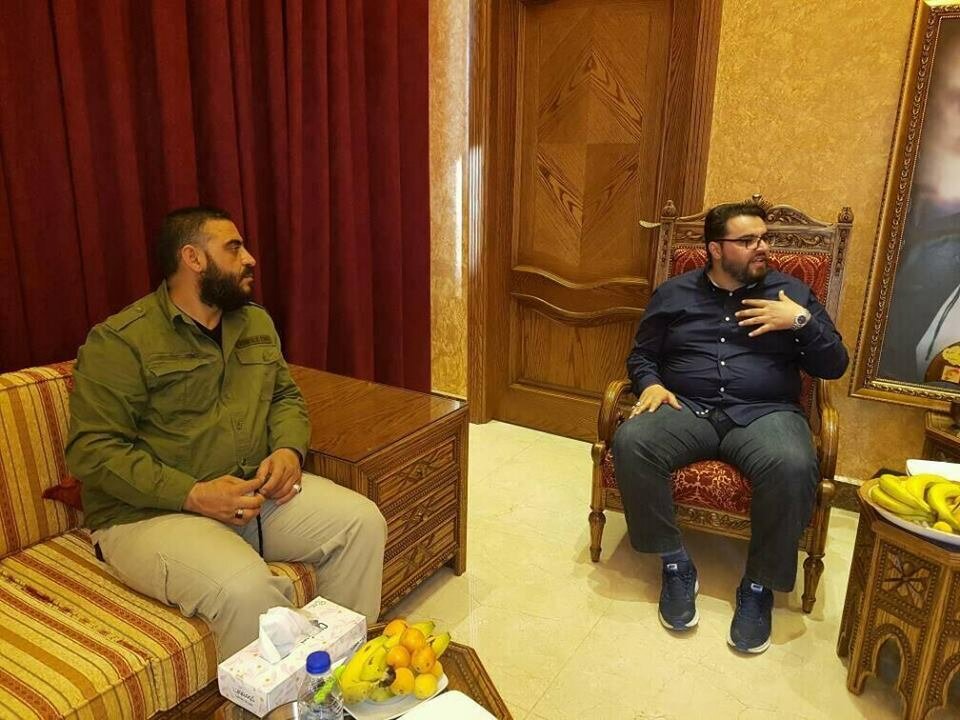
A photo of the founder of the al-Baqir Brigade, Khalid Ali al-Husein, and Yaser al-Moussawi, the son of the former secretary-general of the Lebanese Hezbollah, Abbas al-Moussawi
Read More From: Deir Ezzor
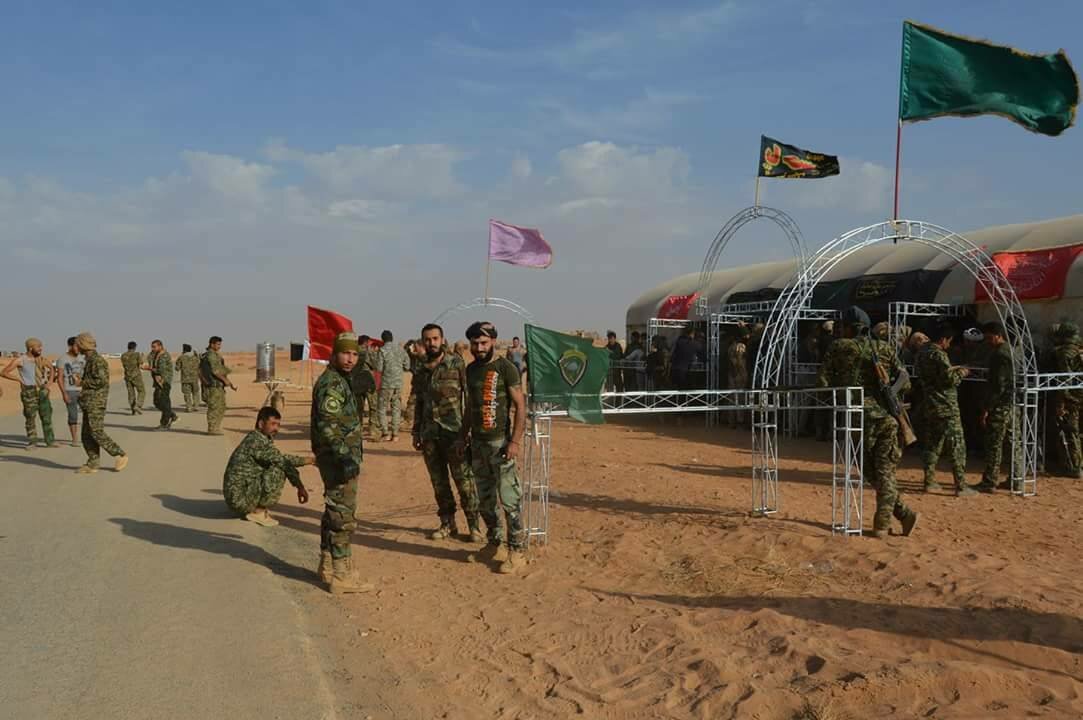
Thus, Iran was able to take root in Deir al-Zour
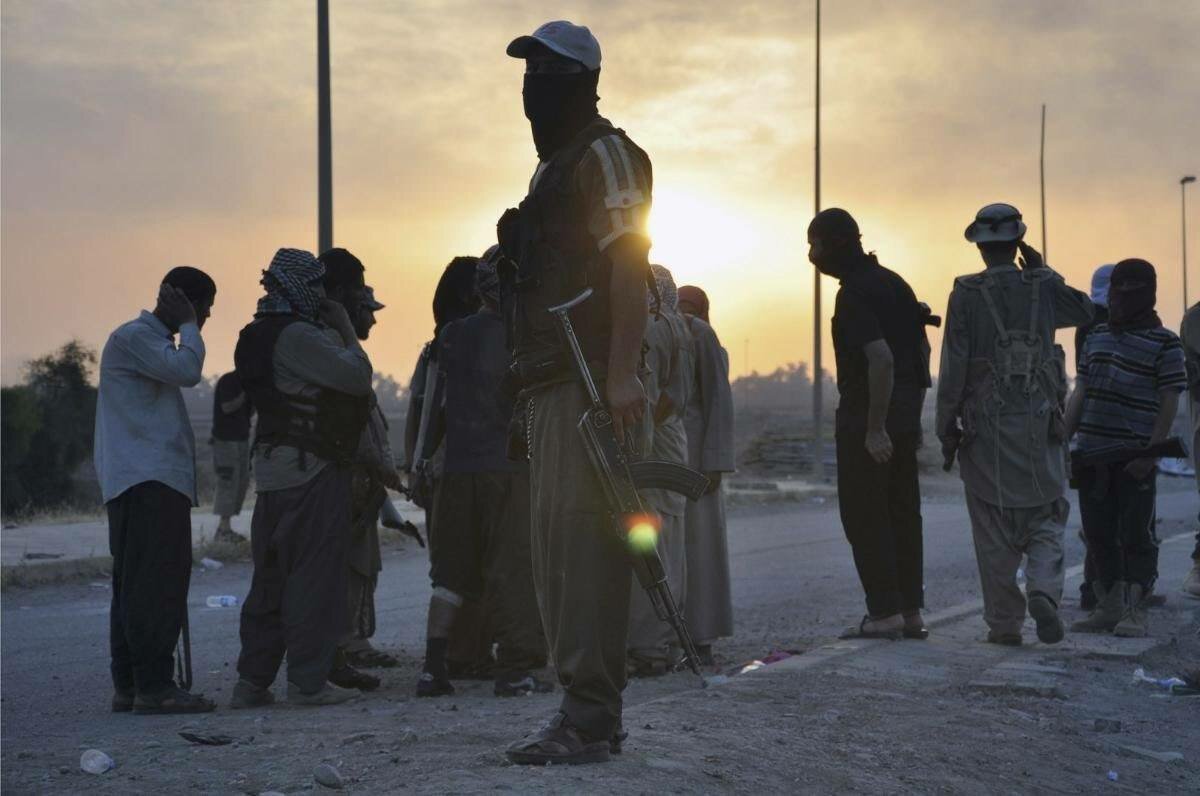
ISIS Captured an Oil Field and Other Areas in Boukmal from SDF and Assad regime
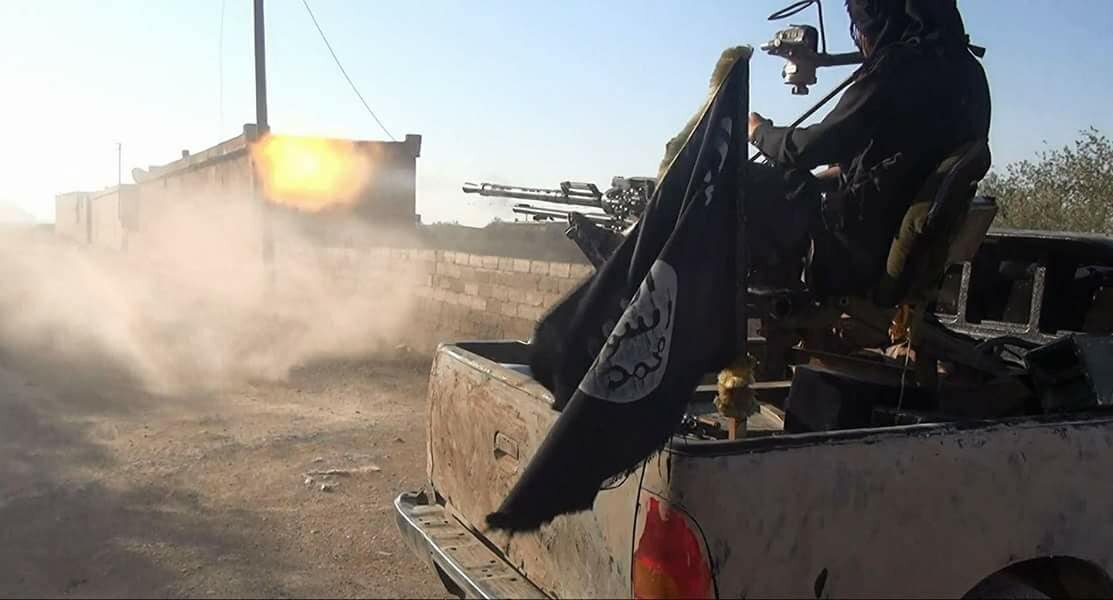
ISIS taking the "T2" station in the desert of Deir Ezzor from the grip of Assad's forces
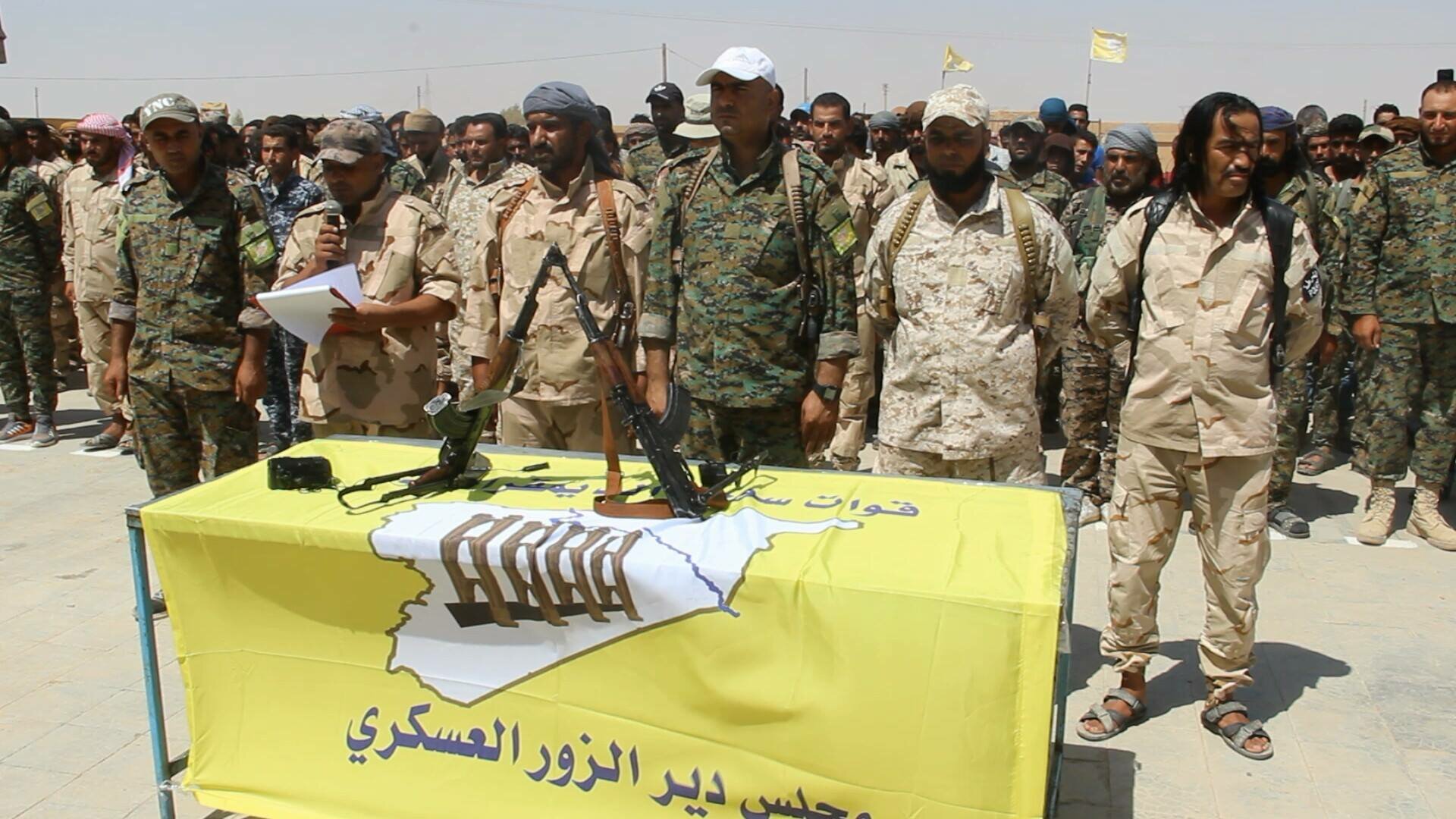
"PYD" Intelligence clashed with members of the "Bakkara brigades" in Deir al-Zour countryside and arrest four of them
